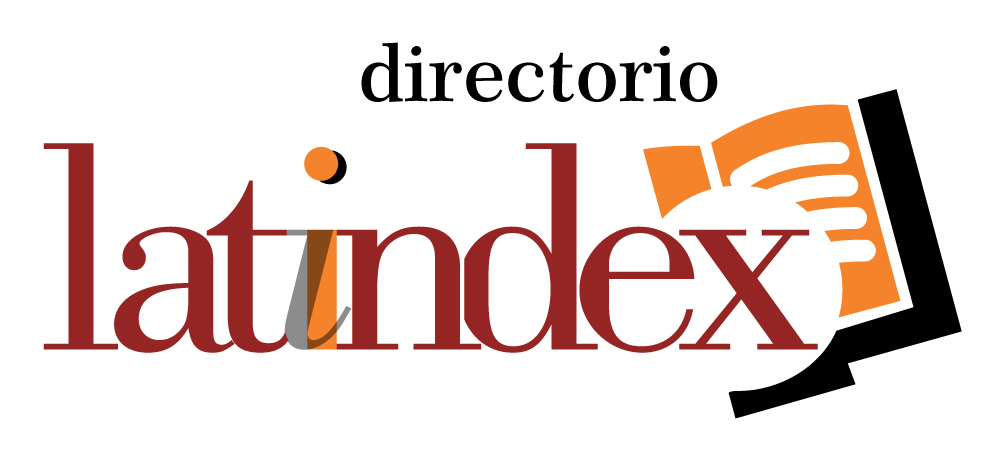Techniques based on learning theories for treating overweight and obesity
DOI:
https://doi.org/10.32870/jbf.v4i7.52Keywords:
obesity, overweight, response recovery, treatment, techniques., Obesity, Overweight, Response recovery, Treatment, TechniquesAbstract
Research of learning processes in animal models has contributed to the understanding of the underlying mechanisms by which a behavior is difficult to change. When a behavior is extinguished and subsequently reappears, it is referred to as ‘response recovery’. These responses have been linked with the difficulty that people have in stopping excessive consumption of high-calorie-dense foods. The chronic intake of processed foods contributes to weight gain. The incorporation of novel techniques derived from basic research in the treatments of overweight and obesity has opened up new ways for the implementation of interventions based on learning processes. These interventions are based on exposure to food cues and have been shown to be effective in reducing binge eating episodes, as well as excessive consumption of palatable foods. The new techniques focus on reducing the likelihood of the subject relapsing into overeating behaviors and increasing the long-term effectiveness of the intervention. It is important to disseminate how these techniques have been implemented and their contribution to increasing the capabilities of professionals who carry out dietary interventions or who apply treatments focused on weight control.
Downloads
References
Alfaro, F., San Martín, C., Laborda, M. A., y Míguez, G. (2022). The effect of extinction cues on response recovery: A meta-analysis. Psykhe. https://doi.org/10.7764/psykhe.2021.38063
Bernal-Gamboa, R. (2013). El papel del contexto en la recuperación de la información. En J. J. Irigoyen, F. Cabrera, M. Y. Jiménez, H. Martínez y K. F. Acuña (Coords.), Estudios sobre Comportamiento y Aplicaciones (vol. 3, pp. 93-117). Universidad de Sonora.
Bernal-Gamboa, R., Gámez, A. M., y Nieto, J. (2018). Spacing extinction sessions as a behavioral technique for preventing relapse in an animal model of voluntary actions. Behavioural Processes, 151, 54–61. https://doi.org/10.1016/j.beproc.2018.01.021
Binks, M., Kahathuduwa, C. N., y Davis, T. (2017). Challenges in accurately modeling the complexity of human ingestive behavior: the influence of portion size and energy density of food on fMRI food-cue reactivity. The American Journal of Clinical Nutrition, 105(2), 289–290. https://doi.org/10.3945/ajcn.116.150813
Boggiano, M. M., Dorsey, J. R., Thomas, J. M., y Murdaugh, D. L. (2009). The Pavlovian power of palatable food: Lessons for weight-loss adherence from a new rodent model of cue-induced overeating. International Journal of Obesity, 33(6), 693–701. https://doi.org/10.1038/ijo.2009.57
Boutelle, K. N., y Bouton, M. E. (2015). Implications of learning theory for developing programs to decrease overeating. Appetite, 93, 62–74. https://doi.org/10.1016/j.appet.2015.05.013
Boutelle, K. N., Knatz, S., Carlson, J., Bergmann, K., y Peterson, C. B. (2017). An open trial targeting food cue reactivity and satiety sensitivity in overweight and obese binge eaters. Cognitive and Behavioral Practice, 24(3), 363–373. https://doi.org/10.1016/j.cbpra.2016.08.003
Boutelle, K. N., Manzano, M. A., y Eichen, D. M. (2020). Appetitive traits as targets for weight loss: The role of food cue responsiveness and satiety responsiveness. Physiology & Behavior, 224, 113018. https://doi.org/10.1016/j.physbeh.2020.113018
Boutelle, K. N., Liang, J., Knatz, S., Matheson, B., Risbrough, V., Strong, D., Rhee, K. E., Craske, M. G., Zucker, N., y Bouton, M. E. (2015). Design and implementation of a study evaluating extinction processes to food cues in obese children: the Intervention for Regulations of Cues Trial (iROC). Contemporary Clinical Trials, 40, 95–104. https://doi.org/10.1016/j.cct.2014.11.011
Boutelle, K. N., Zucker, N., Peterson, C. B., Rydell, S., Carlson, J., y Harnack, L. J. (2014). An intervention based on Schachter's externality theory for overweight children: the regulation of cues pilot. Journal of Pediatric Psychology, 39(4), 405–417. https://doi.org/10.1093/jpepsy/jst142
Bouton, M. E. (2000). A learning theory perspective on lapse, relapse, and the maintenance of behavior change. Health Psychology, 19(1,), 57–63. https://doi.org/10.1037/0278-6133.19.Suppl1.57
Bouton, M. E. (2002). Context, ambiguity, and unlearning: sources of relapse after behavioral extinction. Biological Psychiatry, 52(10), 976-986. https://doi.org/10.1016/S0006-3223(02)01546-9
Bouton, M. E. (2010). The multiple forms of "context" in associative learning theory. En B. Mesquita, L. F. Barrett, & E. R. Smith (Eds.), The Mind in Context (pp. 233–258). The Guilford Press.
Bouton, M. E. (2011). Learning and the persistence of appetite: Extinction and the motivation to eat and overeat. Physiology & Behavior, 103(1), 51–58. https://doi.org/10.1016/j.physbeh.2010.11.025
Bouton, M. E. (2017). Extinction: Behavioral mechanisms and their implications. En J. H. Byne, y R. Menzel (Eds.), Learning and Memory: A Comprehensive Reference (pp. 61-83). Academic Press.
Bouton, M. E., Woods, A. M., y Pineño, O. (2004). Occasional reinforced trials during extinction can slow the rate of rapid reacquisition. Learning and Motivation, 35(4), 371–390. https://doi.org/10.1016/j.lmot.2004.05.001
Brooks, D. C., y Bouton, M. E. (1993). A retrieval cue for extinction attenuates spontaneous recovery. Journal of Experimental Psychology: Animal Behavior Processes, 19(1), 77–89. https://doi.org/10.1037/0097-7403.19.1.77
Brooks, D. C., y Bouton, M. E. (1994). A retrieval cue for extinction attenuates response recovery (renewal) caused by a return to the conditioning context. Journal of Experimental Psychology: Animal Behavior Processes, 20(4), 366–379. https://doi.org/10.1037/0097-7403.20.4.366
Brooks, D. C., y Fava, D. A. (2017). An extinction cue reduces appetitive Pavlovian reinstatement in rats. Learning and Motivation, 58, 59-65. https://doi.org/10.1016/j.lmot.2017.04.002
Chan, W. S., y Cheng, W. Y. (2024). Study protocol: A parallel-group, randomized controlled trial of enhanced cue exposure therapy for negative emotional eating. Research Square (Preprint). https://doi.org/10.21203/rs.3.rs-3837258/v1
Craske, M. G., Treanor, M., Conway, C. C., Zbozinek, T., y Vervliet, B. (2014). Maximizing exposure therapy: an inhibitory learning approach. Behaviour Rsearch and Terapy, 58, 10–23. https://doi.org/10.1016/j.brat.2014.04.006
Crézé, C., Candal, L., Cros, J., Knebel, J. F., Seyssel, K., Stefanoni, N., Schneiter, P., Murray, M. M., Tappy, L., y Toepel, U. (2018). The impact of caloric and non-caloric sweeteners on food intake and brain responses to food: A randomized crossover controlled trial in healthy humans. Nutrients, 10(5), 615. https://doi.org/10.3390/nu10050615
Eichen, D. M., Strong, D. R., Rhee, K. E., y Boutelle, K. N. (2022). The complicated relationship among parent and child disinhibited eating behaviors. Appetite, 171, 105923. https://doi.org/10.1016/j.appet.2022.105923
Ferriday, D., y Brunstrom, J. M. (2011). ‘I just can’t help myself’: Effects of food-cue exposure in overweight and lean individuals. International Journal of Obesity, 35(1), 142–149. https://doi.org/10.1038/ijo.2010.117
González-Torres, M., Carranza-Jasso, R., y Reyes-Huerta, H. (2018). El comportamiento alimentario desde los procesos psicológicos básicos. Reflexiones, avances y retos. En A. López-Espinoza, A. G. Martínez Moreno y V. G. Aguilera-Cervantes (Eds.), Investigaciones en Comportamiento Alimentario: Reflexiones, Alcances y Retos (pp. 32-36). Porrúa.
Gunther, L. M., Denniston, J. C., y Miller, R. R. (1998). Conducting exposure treatment in multiple contexts can prevent relapse. Behaviour Research and Therapy, 36(1), 75–91. https://doi.org/10.1016/s0005-7967(97)10019-5
Hume, D. J., Howells, F. M., Rauch, H. G., Kroff, J., y Lambert, E. V. (2015). Electrophysiological indices of visual food cue-reactivity. Differences in obese, overweight and normal weight women. Appetite, 85, 126–137. https://doi.org/10.1016/j.appet.2014.11.012
Jansen A. (1998). A learning model of binge eating: cue reactivity and cue exposure. Behaviour Research and Therapy, 36(3), 257–272. https://doi.org/10.1016/s0005-7967(98)00055-2
Jansen, A., Broekmate, J., y Heymans, M. (1992). Cue-exposure vs self-control in the treatment of binge eating: A pilot study. Behaviour Research and Therapy, 30(3), 235–241. https://doi.org/10.1016/0005-7967(92)90069-S
Jansen, A., y Schyns, G. (2023). Exposure to promote healthy eating. Journal of Contemporary Psychotherapy, 53(2), 133-140. https://doi.org/10.1007/s10879-022-09575-2
Jansen, A., Schyns, G., Bongers, P., y Van den Akker, K. (2016). From lab to clinic: extinction of cued cravings to reduce overeating. Physiology & Behavior, 162, 174-180. https://doi.org/10.1016/j.physbeh.2016.03.018
Jansen, A., Theunissen, N., Slechten, K., Nederkoorn, C., Boon, B., Mulkens, S., y Roefs, A. (2003). Overweight children overeat after exposure to food cues. Eating Behaviors, 4(2), 197–209. https://doi.org/10.1016/S1471-0153(03)00011-4
Jansen, A., Van den Hout, M. A., De Loof, C., Zandbergen, J., y Griez, E. (1989). A case of bulimia successfully treated by cue exposure. Journal of Behavior Therapy and Experimental Psychiatry, 20(4), 327–332. https://doi.org/10.1016/0005-7916(89)90064-5
Laborda, M. A., McConnell, B. L., y Miller, R. R. (2011). Behavioral techniques to reduce relapse after exposure therapy: Applications of studies of experimental extinction. En T. R. Schachtman y S. Reilly (Eds.), Associative Learning and Conditioning Theory: Human and Non-Human Applications (pp. 79-103). Oxford University Press.
McCaffery, J. M., Haley, A. P., Sweet, L. H., Phelan, S., Raynor, H. A., Del Parigi, A., Cohen, R., y Wing, R. R. (2009). Differential functional magnetic resonance imaging response to food pictures in successful weight-loss maintainers relative to normal-weight and obese controls. The American Journal of Clinical Nutrition, 90(4), 928–934. doi:10.3945/ajcn.2009.27924.
Nieto, G. J., y Bernal Gamboa, R. (2017). Prevención de recuperación de respuestas: Los recordatorios de extinción reducen la reaparición de conductas voluntarias. En J. A. Camacho Candia, F. Cabrera González, O. Zamora Arévalo, F. H. Martínez Sánchez, y J. J. Irigoyen Morales (Eds.), Aproximaciones al Estudio del Comportamiento y sus Aplicaciones (vol. 2, pp. 83-92). Universidad Autónoma de Tlaxcala.
Norberg, M. M., Handford, C. M., Magson, N. R., y Basten, C. (2021). Reevaluating cue exposure and response prevention in a pilot study: An updated treatment for binge eating disorder. Behavior Therapy, 52(1), 195–207. https://doi.org/10.1016/j.beth.2020.04.003
Rosas, J. M., García-Gutiérrez, A., Abad M. J. F., y Callejas-Aguilera J. E. (2005). Contexto y recuperación de la información: ¿qué hace que la recuperación de la información sea dependiente del contexto? En N. J. Vila y J. M. Rosas (Eds.), Aprendizaje Causal y Recuperación de la Información: Perspectivas Teóricas (pp. 47-61). Ediciones del lunar.
Rowe, M. K., y Craske, M. G. (1998). Effects of an expanding-spaced vs massed exposure schedule on fear reduction and return of fear. Behaviour Research and Therapy, 36(7-8), 701–717. https://doi.org/10.1016/S0005-7967(97)10016-X
Schyns, G., Roefs, A., Mulkens, S., y Jansen, A. (2016). Expectancy violation, reduction of food cue reactivity and less eating in the absence of hunger after one food cue exposure session for overweight and obese women. Behaviour Research and Therapy, 76, 57–64. https://doi.org/10.1016/j.brat.2015.11.007
Schyns, G., Roefs, A., y Jansen, A. (2020). Tackling sabotaging cognitive processes to reduce overeating; expectancy violation during food cue exposure. Physiology & Behavior, 222, 112924. https://doi.org/10.1016/j.physbeh.2020.112924
Schyns, G., Roefs, A., Smulders, F. T. Y., y Jansen, A. (2018b). Cue exposure therapy reduces overeating of exposed and non-exposed foods in obese adolescents. Journal of Behavior Therapy and Experimental Psychiatry, 58, 68-77. https://doi.org/10.1016/j.jbtep.2017.09.002
Schyns, G., van den Akker, K., Roefs, A., Hilberath, R., y Jansen, A. (2018a). What works better? Food cue exposure aiming at the habituation of eating desires or food cue exposure aiming at the violation of overeating expectancies?. Behaviour research and therapy, 102, 1–7. https://doi.org/10.1016/j.brat.2017.12.001
Schyns, G., van den Akker, K., Roefs, A., Houben, K., y Jansen, A. (2020). Exposure therapy vs lifestyle intervention to reduce food cue reactivity and binge eating in obesity: A pilot study. Journal of Behavior Therapy and Experimental Psychiatry, 67, Article 101453. https://doi.org/10.1016/j.jbtep.2019.01.005
van den Akker, K., Havermans, R. C., Bouton, M. E., y Jansen, A. (2014). How partial reinforcement of food cues affects the extinction and reacquisition of appetitive responses. A new model for dieting success?. Appetite, 81, 242–252. https://doi.org/10.1016/j.appet.2014.06.024
van den Akker, K., Havermans, R. C., y Jansen, A. (2015). Effects of occasional reinforced trials during extinction on the reacquisition of conditioned responses to food cues. Journal of Behavior Therapy and Experimental Psychiatry, 48, 50–58. https://doi.org/10.1016/j.jbtep.2015.02.001
van den Akker, K., Schyns, G., y Jansen, A. (2018). Learned overeating: applying principles of pavlovian conditioning to explain and treat overeating. Current Addiction Reports, 5(2), 223–231. https://doi.org/10.1007/s40429-018-0207-x
Wadden, T. A., West, D. S., Neiberg, R. H., Wing, R. R., Ryan, D. H., Johnson, K. C., Foreyt, J. P., Hill, J. O., Trence, D. L., Vitolins, M. Z., y Look AHEAD Research Group. (2009). One-year weight losses in the Look AHEAD study: Factors associated with success. Obesity, 17(4), 713–722. https://doi.org/10.1038/oby.2008.637
Published
How to Cite
Issue
Section
License
Copyright (c) 2024 Authors

This work is licensed under a Creative Commons Attribution 4.0 International License.
This is an open-access article distributed under the terms of the Creative Commons Attribution License (CC BY). The use, distribution or reproduction is permitted, provided the original author(s) and the copyright owner(s) are credited and that the original publication in this journal is cited, in accordance with accepted academic practice. No use, distribution or reproduction is permitted which does not comply with these terms.







